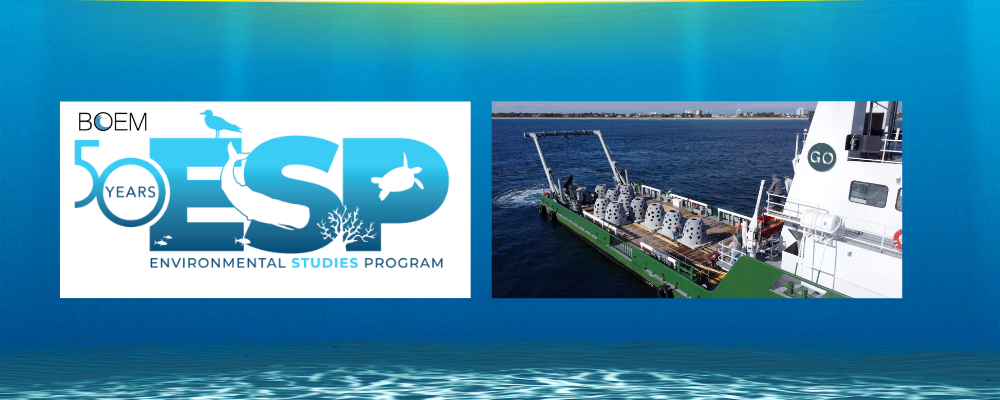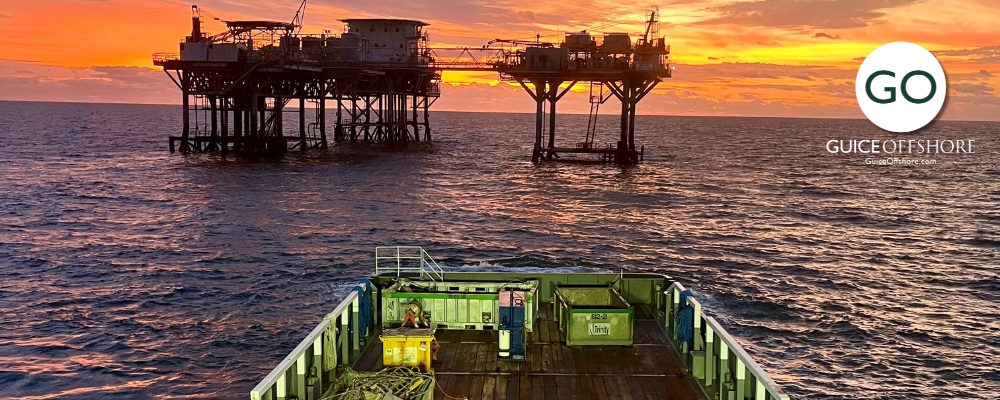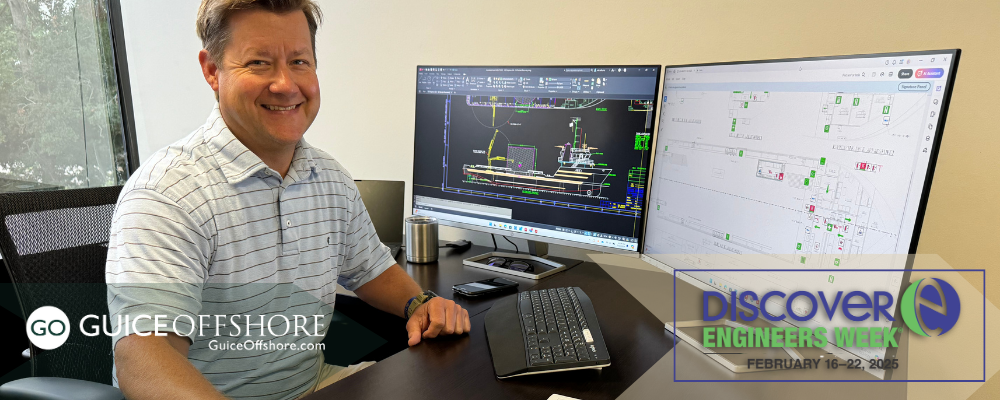For those whose interests are focused on the U.S. Outer Continental Shelf, particularly in research, offshore energy and marine mineral exploration, development and production, the Bureau of Ocean Energy Management (BOEM) has several upcoming events during early December 2023 in which to participate:
BOEM Environmental Studies (ESP) 50th Anniversary Showcase
It’s hard to believe it’s already been 50 years since the BOEM Environmental Studies Program (ESP) was created in 1973!
To commemorate the milestone and the ESP’s research and scientific accomplishments over the years, plus get a glimpse into plans ahead for the future, BOEM is hosting a virtual showcase event on Wednesday, December 13, 2023 from 11:30 a.m. to 1 p.m. (ET) to talk about deep-water shipwrecks, deep-sea corals, ocean acoustics, physical oceanography and submerged cultural resources. Plus, learn about BOEM’s long-term monitoring partnerships and innovative technologies.
Guest speakers include U.S. Secretary of the Interior Deb Haaland (recorded remarks), BOEM Director Elizabeth Klein, ESP’s Dr. Rodney Cluck, BOEM scientists and federal partners, including the Smithsonian Institution.
Please note that space is limited, so registration is required HERE. A recording of the webinar will be made available on BOEM.gov after the session.
The ESP was authorized under the Outer Continental Shelf Lands Act (OCSLA) (43 U.S.C. 1346) in 1973 and provides valuable information to predict, assess and manage impacts from offshore energy and marine mineral exploration, development and production activities on human, marine and coastal environments. This objective, unbiased science has helped inform the BOEM’s decision-making for 50 years and ESP looks forward to continuing this tradition for the next 50.
Meet BOEM’s ESP Future Leaders December 14
On Thursday, Dec. 14, BOEM is hosting an ESP Future Leaders Roundtable from 1:00 – 2:00 p.m. (ET) via Zoom.
This webinar will bring together members of the next generation of equitable and innovative environmental stewards. Panelists will provide insight into why they chose the energy sector and the U.S. federal government and how they are using innovative thinking and fresh perspectives to tackle ocean and climate issues.
Space is also limited for this program, so registration is required HERE. A recording of the webinar will be made available after the session on BOEM.gov.
BOEM “Future Leaders” panelists include:
- Emily Young, John A. Knauss Climate Science Liaison Fellow, Office of Environmental Programs
- Audrey Taylor, John A. Knauss International Relations & Policy Fellow, Office of Strategic Policy and International Affairs
- Chloe Vandermolen, John A. Knauss Just Transition Strategist Fellow, Office of Environmental Programs
- Bonnie Hester, Management and Program Analyst, Office of Renewable Energy Programs
- Dustin Reuther, Social Scientist, Gulf of America Region, Office of Environment
- Christina Bonsell, Marine Ecologist, Alaska Region, Office of Environment
- Jennifer Kenyon, Program Analyst, Office of Strategic Policy and International Affairs
- Juliette Lee, Program Analyst, Office of Strategic Policy and International Affairs (Moderator)
BOEM’s Environmental Studies Program (ESP) develops, funds, and manages rigorous scientific research specifically to inform policy decisions on the development of energy and mineral resources on the Outer Continental Shelf (OCS).
Mandated by Section 20 of the Outer Continental Shelf Lands Act, the ESP is an indispensable requirement informing how BOEM manages offshore oil and gas, offshore renewable energy, and the marine minerals program for coastal restoration.
The ESP has provided over $1 billion for research since its inception in 1973. Research covers physical oceanography, atmospheric sciences, biology, protected species, social sciences and economics, submerged cultural resources, environmental fates and effects, oil spills, and more.
The BOEM ESP Hub is the agency’s latest outreach tool to assist environmental studies involving biology, chemistry, physics, and social sciences research on over 50 topical and timely research themes addressing BOEM’s most pressing offshore energy and minerals information needs.
Learn more about it HERE.
BOEM’s Marine Minerals Program’s 2023 Gulf of America Offshore Sand Management Working Group
BOEM’s Gulf of America Marine Minerals Program office will be hosting the 2023 Gulf of America Offshore Sand Management Working Group (SMWG) meeting on Thursday, December 7, 2023, from 8:00 a.m. to 4:30 p.m. (CT) broadcast live via Zoom. Registration link HERE.
This year’s meeting will discuss sediment management activity across the Gulf of America, including sand inventory efforts, environmental research, and cooperative/interagency agreements. Multi-use initiatives such as offshore renewable energy projects, oil and gas infrastructure, and carbon sequestration will also be covered during the meeting.
The full agenda is available at https://www.boem.gov/2023-SMWG.
The SMWG Meeting will be a hybrid event to accommodate the public through virtual participation. To register for the meeting, go to: Registration Link
Outer Continental Shelf (OCS) sand and gravel resources are vital sources of material for the construction of coastal protection and restoration projects, including efforts to protect coastal communities, national defense facilities, and federal and state infrastructure. In recent years, there has been a growing demand for OCS sediment for planned projects, as well as for emergency needs to restore areas damaged by natural disasters.
Read HERE about how BOEM is striving to reduce or eliminate the potential for multiple use conflicts or environmental impacts that could result from concurrent marine minerals projects by building a national sand inventory.



